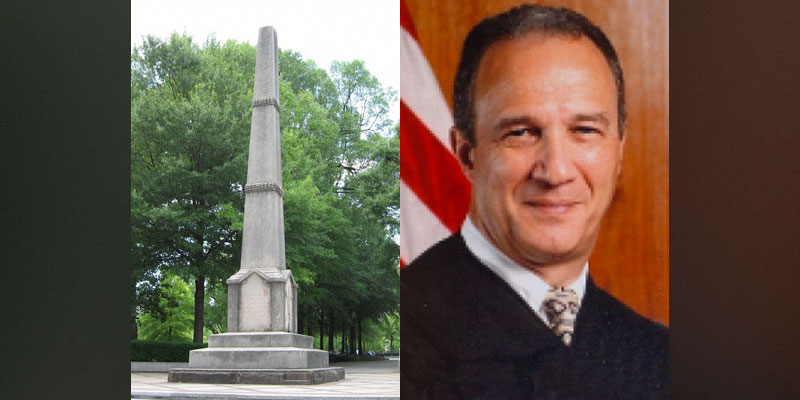A judge has overturned an Alabama law meant to prevent the removal of Confederate monuments from public property, ruling the act infringed on the rights of citizens in a mostly black city who are “repulsed” by the memorial.
The 10-page ruling issued late Monday by Jefferson County Circuit Judge Michael Graffeo said a 2017 state law barring the removal or alteration of historical monuments wrongly violated the free speech rights of local communities.
The law cannot be enforced, Graffeo ruled, but the state could still appeal.
The attorney general’s comment had no immediate response to an email seeking comment Tuesday.
The state sued the city of Birmingham after officials tried to remove a 52-foot-tall (16-meter)-tall obelisk that was erected to honor Confederate veterans in a downtown park in 1905.
Rather than toppling the stone marker, the city built a 12-foot (3.6-meter)-tall wooden box around it.
Birmingham’s population of 210,000 is more than 70 percent black, and the judge said it was indisputable that most citizens are “repulsed” by the memorial.
He rejected the state’s claims that lawmakers had the power to protect historical monuments statewide.
The law includes a $25,000 penalty for removing or altering a historical monument, but the judge said the penalty was unconstitutional.
The city has not had to pay while the lawsuit worked its way through court.
The ruling came hours after the inauguration of Republican Gov. Kay Ivey, who signed the law and opened her campaign last year with a commercial that prominently showed Confederate monuments.
“We can’t change or erase our history, but here in Alabama we know something that Washington doesn’t. To get where we are going means understanding where we have been,” Ivey said in the ad.
Supporters of the law contend it protects not just Confederate memorials but historical markers of any kind, but rebel memorials have been an issue nationwide since a white supremacist gunman killed nine worshippers in a black church in Charleston, South Carolina, in 2015.
(Associated Press, copyright 2018)
Sign-up now for our daily newsletter and never miss another article from Yellowhammer News.













